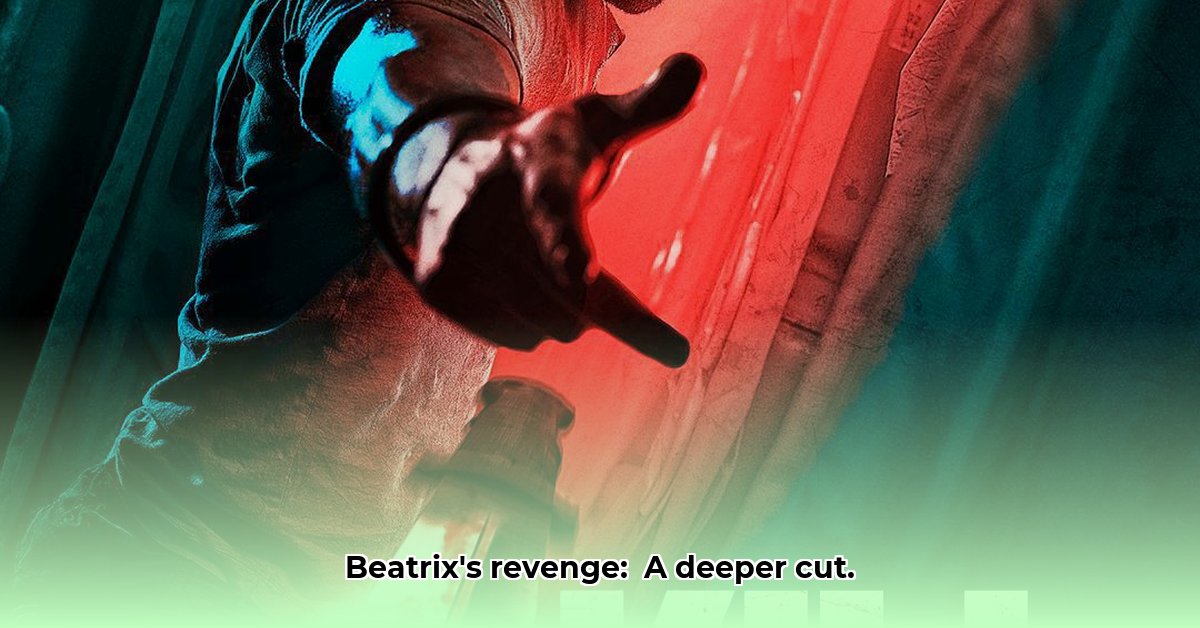
The Bride's Bloody Ballad: More Than Just a Bruise
Eish, Kill Bill. It’s not just another chop-socky flick, is it? It's a proper deep dive into Beatrix Kiddo’s journey – a transformation from stone-cold killer to heartbroken bride, and finally, to a mama bear hellbent on revenge. Ja, it's brutal, but there's far more depth than just the blood and guts. That's what makes her such a compelling character, no? It's not merely about the impressive fighting skills she hones; it’s a complete internal overhaul, a forging in the fires of betrayal and loss that strengthens her resolve. The wedding massacre and subsequent coma aren't mere plot devices; they're the crucible where she's refined, refocused, and remade.
But how does this transformation impact her actions moving forward? Does it give her a license to kill, or taint her pursuit of justice? This is the core conflict driving the narrative – a question that hangs heavy over the film's many violent and intensely choreographed sequences.
Deconstructing the Deadly Viper: Why She Went After Them
The film masterfully intertwines revenge with devastating personal loss. Beatrix isn't just seeking payback; she's reclaiming her stolen life, piece by agonizing piece. Each member of the Deadly Viper Assassination Squad isn't merely a target; they represent a fragment of her shattered past. Consider the showdown with O-Ren Ishii, the icy yakuza boss in Tokyo. Their epic battle is more than just a fight; it's a clash of titans, two powerful women locked in a deadly dance. The precision, the artistry of the violence, is breathtaking in its mix of chaotic ferocity and balletic grace. The film's stylistic nods to classic martial arts films and anime further enrich the visual spectacle, adding another layer to the experience. But what is the effect on Beatrix of this calculated violence? Does it provide catharsis, or merely fuel the cycle of violence she finds herself trapped in?
The Price of Vengeance: Is Revenge Ever Really Worth It?
Here's the kicker: is Beatrix's quest for justice truly justified? Does vengeance bring solace, or does it only sow further chaos? The film doesn’t offer easy answers. The non-linear narrative structure forces us to contemplate the consequences of her actions, leaving us to ponder the true cost of revenge, long after the final credits roll. It's this moral ambiguity, this grey area, that elevates Kill Bill beyond a typical revenge thriller. It's a stark reminder of the human cost of violence.
Motherhood and Mayhem: A Killer with a Softer Side
Then there's B.B., her daughter, adding another layer of complexity to Beatrix's character. Motherhood softens those hard edges, revealing surprising vulnerability and a capacity for love. However, this newfound tenderness doesn't diminish her lethality. The film brilliantly showcases both sides of her – the devastating assassin and the fiercely protective mother. This duality, this potent mixture of strength and weakness, is what makes her so captivating. How does motherhood influence the way she conducts her quest? This is a central question the film raises – exploring the possibility of reconciliation between maternal instinct and unwavering dedication to revenge.
Beyond the Bloodshed: Beatrix's Lasting Impact
Tarantino's Kill Bill transcends the genre of mere action cinema. Beatrix Kiddo, with her layered complexity and unwavering determination, is an iconic character. She's a strong female lead who subverts stereotypes, wrestling with themes of identity, betrayal, and the enduring power of a mother's love, all amidst a whirlwind of stylish violence. This potent mix gives her a lasting impact, a resonance that continues to provoke thought and discussion. The film invites us to grapple with the themes of revenge, female empowerment and the appeal of an anti-heroine whilst forcing an acknowledgement of the devastating consequences of the path she chooses. The lasting impression is a potent one, lingering long after the closing scene.